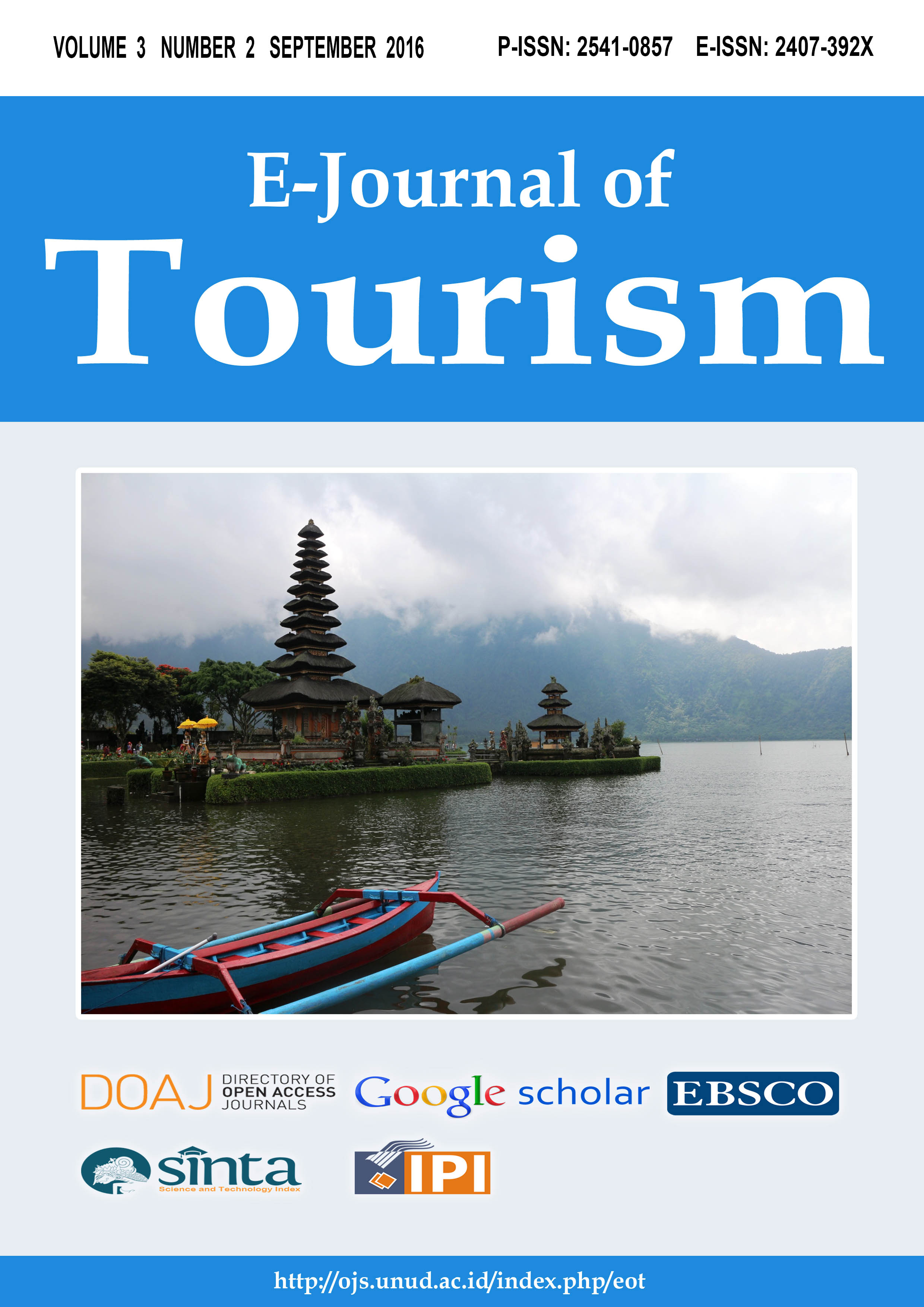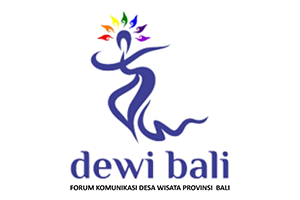The Role of Cultural Values in Motivating the Competencies of Hindu Balinese Human Resources in Tourism to Gain Manager Level Positions in Rated Hotels in Bali
Abstract
In response to the new era of the ASEAN Economic Community (AEC) since year 2015 – Bali, as the primary gateway of Indonesian tourism, must improve the quality of Hindu Balinese human resources in tourism (HB HRT). Winata (2014: 6) explained that adat istiadat (customs and traditions) is one of the cause for their low commitment in their job, as HB HRT often take leave due to adat obligations. Therefore, one of the impact, as in the case of a hotel in Kuta, is that hotels often avoid recruiting HB HRT. Hence, issue to be discussed in this study is to understand the role of Balinese Cultural Values as a potential and as an obstacle in HBHRT’s competency to achieve managerial positions in star-rated hotels in Bali. The research will use a concurrent triangulation method on data collected through interviews and questionaires.While sampling will be done with Purposive Sampling method on star-rated hotels located in Sanur, Kuta and Nusa Dua. Finally, the data analysis will be carried out by referring to Motivation Theory (McClelland, 1976), Competency Theory (Spencer and Spencer, 1993), Value Orientations Theory (Kluckhohn and Strodtbeck, 1961), through a descriptive interpretative qualitative approach as well as a quantitative approach based on Principal Component Analysis (PCA) statistics.
The research results will show that based on the data, HB HRT have good set of competencies, and these good competencies are inseparable from their background of Balinese Cultural Values (BCV), mainly derived from Hindu culture and religion. As part of upholding their culture, a HB HRT is a person with pawongan concept of harmonious relationship between human beings indicated by 79.1% people with tresna (love), the parhyangan concept of harmonious relationship between human beings and God indicated by 75% people engaging in dharma yatra pilgrimages and study, and the palemahan concept of harmonious relationship between human beings and nature indicated by 69.8% people valuing Bali shanti (a peaceful Bali). On the other hand the obstacles in occupying manager positions in star-rated hotels in Bali are mostly due to internal factors – namely, their own personal motives which are often based on erroneous understandings of BCV. Therefore, in order to increase the Spiritual
Quotient (SQ) of HB HRT in achieving managerial positions, the strategy will be through career development with motivation programs while redefining their Balinese Cultural Values to give positive impact to their living standard, to the company, to the environment, and to God.
Downloads
Keywords

This work is licensed under a Creative Commons Attribution 4.0 International License.
The copyright of the received article shall be assigned to the journal as the publisher of the journal. The intended copyright includes the right to publish the article in various forms (including reprints). The journal maintains the publishing rights to the published articles.




















